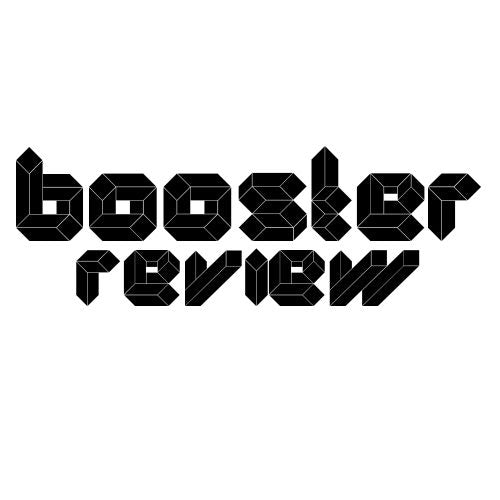In the digital age, small businesses have a wide range of marketing tools at their disposal that can help them grow and achieve their goals. From review management solutions to social media platforms, there are many options available. In this article, we'll explore the best marketing tools for small businesses, highlighting how each can contribute to the success of a business.
1. Social Media Platforms
Social media is an essential marketing channel for any small business. Platforms like Facebook, Instagram, LinkedIn and Twitter allow businesses to reach a wide and diverse audience.
Facebook and Instagram: These platforms are ideal for creating targeted advertising campaigns. They offer advanced targeting options that allow businesses to reach exactly the audience they want, based on interests, location and online behavior.
LinkedIn: It is a great platform for B2B business. LinkedIn allows for the creation of professional relationships and networking, being useful for generating leads and promoting specialized content.
Twitter: This is an ideal platform to quickly engage with customers and share news and updates about your business.
For more information on using social media in business, check out our full guide here .
2. Review Platforms

Online reviews play a crucial role in the purchasing decision of consumers. Effective review management can significantly improve the image of a business.
Booster Stand: It is an innovative tool for collecting positive reviews directly in the store. It uses NFC technology and QR codes to facilitate the feedback process. Businesses can link to Google, Yelp, Facebook, appointments, and even payments, all managed from an integrated platform. Setup for multiple locations is instant, making it ideal for businesses with multiple outlets.
For more details on the Booster Stand, visit the product page here .
Google Review Cards: These cards make it easy to collect positive customer reviews by providing an easy way to drive customers to online review platforms. With these cards, businesses can increase the number and quality of reviews they receive, which can lead to increased visibility in Google search results.
To learn more about Google Review Cards, visit the product page here .
3. Email Marketing
Email marketing remains one of the most effective marketing tools, offering an impressive ROI. Email marketing platforms allow businesses to send personalized messages and maintain a constant relationship with customers.
Mailchimp: It is one of the most popular email marketing platforms, offering tools for creating email campaigns, automations, and performance analysis. Mailchimp is ideal for small businesses thanks to its intuitive interface and flexible pricing plans.
Constant Contact: This is another great email marketing platform that offers similar functionality to Mailchimp, but with a greater focus on customer support and assistance.
4. SEO and Content Marketing
Search engine optimization (SEO) and content marketing are essential to increasing online visibility. Creating relevant content and optimizing your site for specific keywords can drive organic traffic and generate qualified leads.
SEMrush: It is a complete digital marketing platform that offers tools for keyword research, competitor analysis and SEO audit. SEMrush is ideal for small businesses looking to improve their website's SEO performance.
Ahrefs: Another top SEO platform, it offers advanced backlink analysis, keyword research, and search engine ranking monitoring.
For more SEO tips and strategies, check out our guide on effective strategies for getting positive reviews .
5. Marketing through Influencers
Working with influencers can bring visibility and credibility to a small business. Influencers have a loyal audience and can influence the purchasing decisions of their followers.
Instagram and YouTube: They are the top platforms for influencer marketing. Choosing the right influencers who align with your business values and goals is crucial to your campaign's success.
6. PPC (Pay-Per-Click) advertising
PPC advertising, such as Google Ads, allows businesses to appear in search results for relevant keywords. This is a quick way to drive qualified traffic to your website.
Google Ads: It is the most popular PPC advertising platform, offering advanced targeting options and a wide range of ad formats.
Facebook Ads: It is also a powerful platform for PPC advertising, allowing businesses to target users based on interests, behavior and demographics.
7. CRM and Customer Relationship Management
A CRM (Customer Relationship Management) system helps businesses manage customer interactions and improve long-term relationships.
Salesforce: It is one of the most widely used CRM systems, offering solutions for sales, marketing and customer service. Salesforce is ideal for businesses looking to optimize their sales processes and improve the customer experience.
HubSpot: Another popular CRM platform known for its ease of use and integration with other marketing tools. HubSpot offers free and paid solutions, making it affordable for small businesses.
Conclusion
Choosing the right marketing tools can have a significant impact on the success of a small business. From social media platforms and SEO, to review management and email marketing, each tool has its role in creating an effective and coherent marketing strategy.
For more information and tips, visit our blog here .
For products to help you collect positive reviews and improve your online visibility, check out our range of review stands and NFC review cards .
By implementing these tools and strategies, you will be able to increase the visibility of your business, attract more customers and build strong relationships with them.


Shari:
Examples of 5 Star Reviews
Online Marketing Guide for Small Businesses